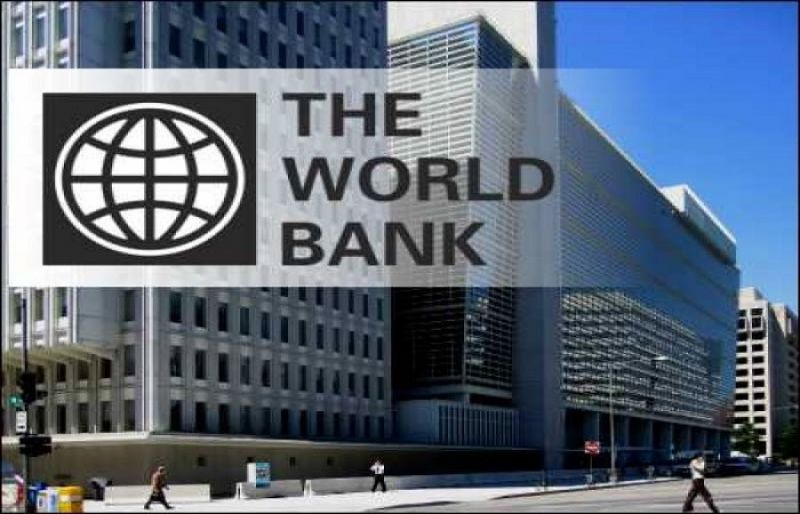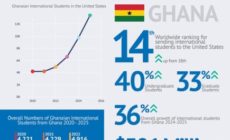Ghana’s economic prospects on track amid reform – World Bank
- Posted on
- Comment

Ghana’s economic indicators remain on track for 2024 and beyond, the World Bank’s 8th Economic Update for Ghana titled “Strengthening Domestic Revenue Systems for Fiscal Sustainability” has revealed.
This is despite the recent increases in the pace of exchange rate depreciation and slower-than-expected inflation reduction.
The report highlights the steady progress made by Ghana over the past year in addressing severe macroeconomic imbalances that emerged in 2022.
The report said the economic situation has been improving in line with targets due to efforts to restore fiscal and debt sustainability, reduce inflation, and strengthen financial stability.
Due to the lingering effects of the macroeconomic challenges, growth in 2023 was low at 2.9% albeit higher than initial projections, while inflation declined to 23.2 percent in December 2023 from a peak of 54.1% in December 2022. This progress is attributed to the Bank of Ghana’s firmer monetary policy and more stable exchange rates.
“Ghana’s macroeconomic crisis in 2022 has set back poverty reduction efforts, with poverty levels estimated at 30.3% in 2023. It is crucial to maintain the momentum of the reforms, while mitigating the impact on the poor, to help sustain Ghana’s economic rebound. In parallel, we must lay the foundations for more sustainable and resilient economic growth by implementing comprehensive structural reforms to foster economic diversification and promote long-term inclusive growth,” said Michelle Keane, World Bank Acting Country Director for Ghana, Liberia, and Sierra Leone.
The report also underscored the need to focus on the quality of the fiscal adjustment to minimise the impact on growth, the poor, and the vulnerable population. Recommendations include reestablishing the fiscal rule, strengthening public financial management, and accelerating revenue mobilization to restore macroeconomic stability and support long-term sustainable growth. In addition, the report highlights the importance of sector-specific reforms to ensure financial sustainability in agriculture and energy and rebuild capital buffers in the financial sector.
It added that structural reforms will be key to revitalisng growth and fostering economic diversification and transformation. For example, improving infrastructure quality and accessibility can boost trade, competitiveness, connectivity, and productivity.
Facilitating access to long-term financing and improving the business climate, it stated, could create a conducive environment for private sector growth. Building human capital and improving service delivery for underserved regions and populations can enhance productivity and attract both Foreign Direct Investment (FDI) and local investment in high-value, labor-intensive manufacturing and services.
“These measures collectively aim to enhance fiscal transparency, accountability, and resilience, ensuring sustainable economic growth; and should be complemented by initiatives to expand targeted social protection programmes to promote social inclusion,” said Kwabena Gyan Kwakye, author of the Economic Update.
The special topic of the report focused on domestic revenue mobilisation, noting that Ghana’s tax collection has been low relative to its peers. Between 2017 and 2021, Ghana’s average tax collection was 13.2% of Gross Domestic Product, well below the Sub-Saharan Africa average and 8.0 percentage points short of the country’s estimated tax capacity of 21.2% of GDP.
The report identified areas of inefficiencies within Ghana’s tax policy framework and compliance mechanisms. It said if addressed these could help ensure macroeconomic stability and generate resources necessary for sustainable long-term growth and poverty reduction efforts.
Areas the report identified where this could be enhanced include rationalising large tax expenditures, that have contributed to the overall decline of tax revenues. This would require striking the balance between reducing revenue losses and the potential distributional and social impacts.
“Rationalising tax exemptions will entail removing those deemed to be unjustified or falling short of their stated goals. The Ministry of Finance should first assess the impact of Tax Exemption removals on poverty – and suggest appropriate mitigating measures,” said Elijah Gatuanjau Kimani, co-author.
-Joy Business










 (Selorm) |
(Selorm) |  (Nana Kwesi)
(Nana Kwesi)